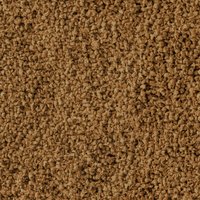sera Discus Color Granules
Color food for discus- sinking soft granules, that retain their shape, for discus
- with a high amount of color optimizing ingredients such as krill and gammarus
- contains natural astaxanthin from Haematococcus algae (175 mg/kg of food)
- with optimally digestible aquatic protein from high quality sources
- quickly develops a meaty consistency in water without swelling excessively
Discus Color Granules is the color food without dyes and preservatives consisting of gently manufactured soft granules for all discus fish.
The balanced combination of color optimizing ingredients such as natural astaxanthin from Haematococcus algae (175 mg/kg of food) as well as gammarus and krill supports color development in a natural way. Disease resistance, healthy development as well as fertility are strengthened by optimally digestible aquatic protein, omega fatty acids, minerals, and trace elements.
The sinking, easily digestible granules quickly become soft without swelling or losing their shape when moist. Thus, the water is not polluted.
Appropriate diet for discus
Symphysodon, commonly known as discus or discus fish, belong to the family Cichlidae. They are among the most sensitive ornamental fish species, which, in many respects, have special requirements in terms of keeping conditions – including their diet. Discus are finicky fish that are often accustomed to a certain type of food due to feeding by their breeder. However, with the help of a gradual adaptation, they can usually be encouraged to eat other types of food. As they only have a short digestive tract, it is important that the food – which should only be fed sparingly – does not swell in the stomach. The sera discus food quickly develops a meaty consistency in water, which is particularly appreciated by discus. At the same time, it does not swell excessively. In addition to a staple food, which provides a good basis for feeding discus, the sera discus food range also includes a color food and a growth food.
All sera aquarium foods belong to the “Nature” range and do not require any dyes or preservatives.
Appropriate diet for discus
Symphysodon, commonly known as discus or discus fish, belong to the family Cichlidae. They are among the most sensitive ornamental fish species, which, in many respects, have special requirements in terms of keeping conditions – including their diet. Discus are finicky fish that are often accustomed to a certain type of food due to feeding by their breeder. However, with the help of a gradual adaptation, they can usually be encouraged to eat other types of food. As they only have a short digestive tract, it is important that the food – which should only be fed sparingly – does not swell in the stomach. The sera discus food quickly develops a meaty consistency in water, which is particularly appreciated by discus. At the same time, it does not swell excessively. In addition to a staple food, which provides a good basis for feeding discus, the sera discus food range also includes a color food and a growth food.
All sera aquarium foods belong to the “Nature” range and do not require any dyes or preservatives.
| Product name | Content | Item no. |
|---|---|---|
|
sera Discus Color Granules |
100 ml (42 g) | 00332 |
|
sera Discus Color Granules |
250 ml (105 g) | 00334 |
|
sera Discus Color Granules |
10 L (4 kg) | 00337 |
|
sera Discus Color Granules |
20 kg (20 kg) | 32785 |
Complete feed for all discus fish
Feed once or twice daily, only as much as the animals take up within a short time.
fish meal, wheat flour, wheat germ, brewers yeast, insect meal (Hermetia illucens), Ca-caseinate, krill meal (4%), wheat gluten, fish oil (3.5%), Haematococcus algae (corresponds to 175 mg astaxanthin per kg of food), gammarus meal (0.5%), mannan oligosaccharides (0.4%), green-lipped mussel meat meal, stinging nettle, alfalfa, parsley, sea algae meal, paprika, garlic, spirulina, spinach, carrots, fenugreek seeds, fennel seeds, anise seeds.
Crude Protein 50.0%, Crude Fat 10.5%, Crude Fiber 2.5%, Moisture 5.0%, Crude Ash 9.0%.
Vitamins and provitamins: 3a672a/Vit. A 37,000 IU/kg, 3a671/Vit. D3 1,800 IU/kg, 3a700/Vit. E 120 mg/kg, 3a820/Vit. B1 35 mg/kg, 3a825i/Vit. B2 90 mg/kg, 3a312/stab. Vit. C 550 mg/kg.
- Images (Print)
- 04001942552868A001bhx0101.jpg
- 04001942552769A001bhx0101.jpg
- 04001942552929A001bhx0101.jpg
- Images (Internet optimized)
- 04001942552868a001bhx0101.png
- 04001942552769a001bhx0101.png
- 04001942552929a001bhx0101.png






